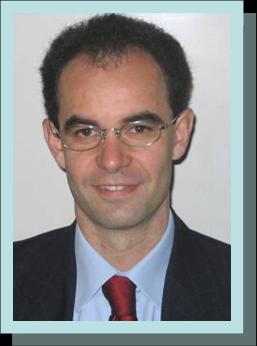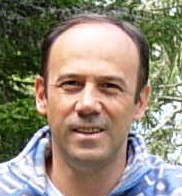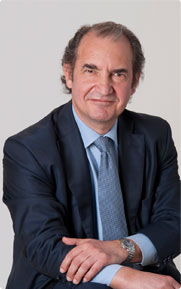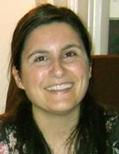Studying at the University of Verona
Here you can find information on the organisational aspects of the Programme, lecture timetables, learning activities and useful contact details for your time at the University, from enrolment to graduation.
Academic calendar
The academic calendar shows the deadlines and scheduled events that are relevant to students, teaching and technical-administrative staff of the University. Public holidays and University closures are also indicated. The academic year normally begins on 1 October each year and ends on 30 September of the following year.
Course calendar
The Academic Calendar sets out the degree programme lecture and exam timetables, as well as the relevant university closure dates..
| Period | From | To |
|---|---|---|
| Primo semestre | Sep 15, 2014 | Jan 9, 2015 |
| Secondo semestre | Feb 19, 2015 | May 29, 2015 |
| Session | From | To |
|---|---|---|
| prove intermedie (primo semestre) | Nov 3, 2014 | Nov 7, 2014 |
| sessione invernale | Jan 12, 2015 | Feb 18, 2015 |
| prove intermedie (secondo semestre) | Apr 13, 2015 | Apr 17, 2015 |
| sessione estiva | Jun 4, 2015 | Jul 11, 2015 |
| sessione autunnale | Aug 24, 2015 | Sep 9, 2015 |
| Session | From | To |
|---|---|---|
| sessione autunnale | Dec 12, 2014 | Dec 19, 2014 |
| sessione invernale | Apr 8, 2015 | Apr 10, 2015 |
| sessione estiva | Sep 10, 2015 | Sep 11, 2015 |
| Period | From | To |
|---|---|---|
| festività natalizie | Dec 22, 2014 | Jan 5, 2015 |
| festività pasquali | Apr 3, 2015 | Apr 7, 2015 |
| vacanze estive | Aug 10, 2015 | Aug 22, 2015 |
Exam calendar
Exam dates and rounds are managed by the relevant Economics Teaching and Student Services Unit.
To view all the exam sessions available, please use the Exam dashboard on ESSE3.
If you forgot your login details or have problems logging in, please contact the relevant IT HelpDesk, or check the login details recovery web page.
Academic staff
 giovanna.caramia@univr.it
giovanna.caramia@univr.it
 tamara.fioroni@univr.it
tamara.fioroni@univr.it
 annamaria.guolo@univr.it
annamaria.guolo@univr.it

Lionzo Andrea
 andrea.lionzo@univr.it
andrea.lionzo@univr.it

Peluso Eugenio
 eugenio.peluso@univr.it
eugenio.peluso@univr.it
 045 8028104
045 8028104
 francesca.rossignoli@univr.it
francesca.rossignoli@univr.it
 0444 393941 (Ufficio Vicenza) 0458028261 (Ufficio Verona)
0444 393941 (Ufficio Vicenza) 0458028261 (Ufficio Verona)
 giuseppe.trabucchi@univr.it
giuseppe.trabucchi@univr.it
 marcella.veronesi@univr.it
marcella.veronesi@univr.it
Study Plan
The Study Plan includes all modules, teaching and learning activities that each student will need to undertake during their time at the University.
Please select your Study Plan based on your enrollment year.
1° Year
| Modules | Credits | TAF | SSD |
|---|
2° Year activated in the A.Y. 2015/2016
| Modules | Credits | TAF | SSD |
|---|
3° Year activated in the A.Y. 2016/2017
| Modules | Credits | TAF | SSD |
|---|
| Modules | Credits | TAF | SSD |
|---|
| Modules | Credits | TAF | SSD |
|---|
| Modules | Credits | TAF | SSD |
|---|
| Modules | Credits | TAF | SSD |
|---|
Legend | Type of training activity (TTA)
TAF (Type of Educational Activity) All courses and activities are classified into different types of educational activities, indicated by a letter.
Macroeconomics (2014/2015)
Teaching code
4S00242
Credits
9
Language
Italian
Also offered in courses:
- Macroeconomics of the course Bachelor's degree in Economics and Business (Vicenza)
- Macroeconomics - lezione of the course Bachelor's degree in Economics and Business (Vicenza)
- Macroeconomics - esercitazione of the course Bachelor's degree in Economics and Business (Vicenza)
Scientific Disciplinary Sector (SSD)
SECS-P/01 - ECONOMICS
The teaching is organized as follows:
lezione
esercitazione
Learning outcomes
The course aims at providing appropriate training on the fundamentals of macroeconomic issues such as: the evolution of aggregate production, fluctuations in income and employment and the role of stabilization policies, the causes of inflation and the determinants of economic growth. Particular attention will be given to issues of greatest relevance as the evolution of public debt and the determinants of aggregate consumption.
The course is divided into three parts:
(i) models for the determination of output and employment in the short term, even in an open economy;
(ii) medium-term models for the analysis of inflation and the cyclic changes in production;
(iii) the long run models for the study of economic growth and its determinants.
The teaching methods consist of lectures on macroeconomic theory and classes on numerical examples. The e-learning platform of the University will be used to make available to students materials used in the tutorials and further useful readings to the understand the subject.
Program
1. The main schools of economic thought.
2. Elements of the national accounts.
3. Aggregate demand and the income multiplier.
4. The market for goods and money: The IS-LM model.
5. Consumption, investment, government spending.
6. Aggregate supply and demand.
7. Inflation and unemployment.
8. International relations and problems of the open economy.
9. Growth and accumulation.
Textbooks
G. TONDINI, Formazione e distribuzione della ricchezza nelle diverse scuole di pensiero, Aracne Roma, 2006.
DORNBUSCH,FISCHER,STARTZ,CANULLO,PETTENATI, Macroeconomia, McGraw-Hill Higher Education Italy, Milano, 2014, 11° ed.
Chapters: 1,2,3,4,5,6,7,8 (except paragraph.8.5 and appendix),10,13,16 (paragraphs 16.1,16.2, only),17 (paragraphs.17.1,17.4,17.5,17.6,17.7 only)
Examination Methods
There will be a final written exam. No exams will be held during the course
The exam will consist of three "open" questions on the topics of macroeconomic theory developed during the course and in an exercise to be solved by numerical techniques relating to formal models covered in class. The exercises done in class will prepare the student to solve the numerical exercise. Examples with solution will be available on the e-learning platform of the course.
The exam will asses the level of knowledge and understanding of macroeconomic theory in the short, medium and long term the student has reached, the ability to understand the effects of macroeconomic policies used to solve the problems the real economies are facing and the ability to apply formal models to concrete cases.
DORNBUSCH,FISCHER,STARTZ,CANULLO,PETTENATI, Macroeconomia, McGraw-Hill Higher Education Italy, Milano, 2014, 11° ed.
Chapters: 1,2,3,4,5,6,7,8 (except paragraph.8.5 and appendix),10,13,16 (paragraphs 16.1,16.2, only),17 (paragraphs.17.1,17.4,17.5,17.6,17.7 only)
Type D and Type F activities
Modules not yet included
Career prospects
Module/Programme news
News for students
There you will find information, resources and services useful during your time at the University (Student’s exam record, your study plan on ESSE3, Distance Learning courses, university email account, office forms, administrative procedures, etc.). You can log into MyUnivr with your GIA login details: only in this way will you be able to receive notification of all the notices from your teachers and your secretariat via email and soon also via the Univr app.






















